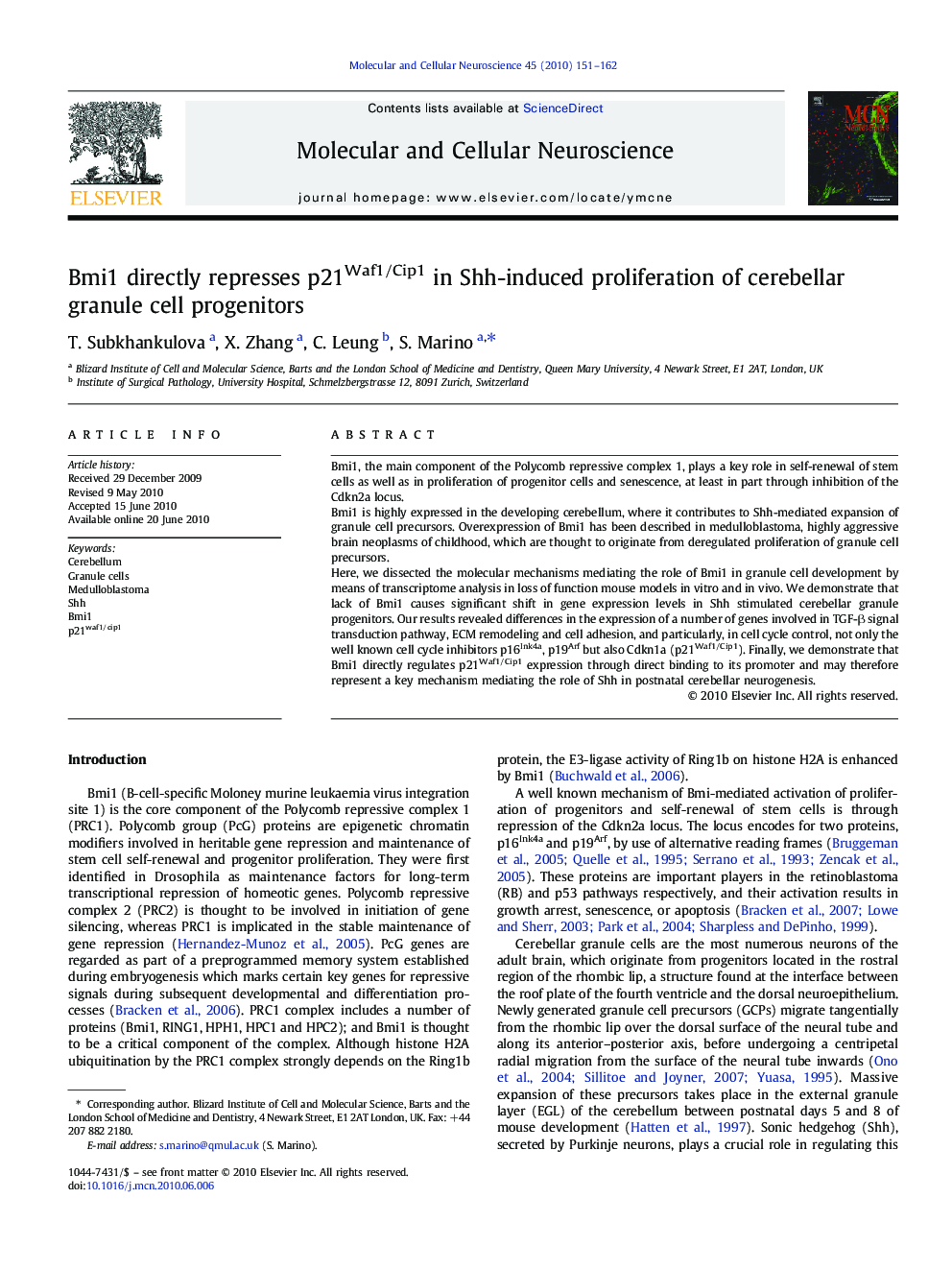| Article ID | Journal | Published Year | Pages | File Type |
|---|---|---|---|---|
| 2198761 | Molecular and Cellular Neuroscience | 2010 | 12 Pages |
Bmi1, the main component of the Polycomb repressive complex 1, plays a key role in self-renewal of stem cells as well as in proliferation of progenitor cells and senescence, at least in part through inhibition of the Cdkn2a locus.Bmi1 is highly expressed in the developing cerebellum, where it contributes to Shh-mediated expansion of granule cell precursors. Overexpression of Bmi1 has been described in medulloblastoma, highly aggressive brain neoplasms of childhood, which are thought to originate from deregulated proliferation of granule cell precursors.Here, we dissected the molecular mechanisms mediating the role of Bmi1 in granule cell development by means of transcriptome analysis in loss of function mouse models in vitro and in vivo. We demonstrate that lack of Bmi1 causes significant shift in gene expression levels in Shh stimulated cerebellar granule progenitors. Our results revealed differences in the expression of a number of genes involved in TGF-β signal transduction pathway, ECM remodeling and cell adhesion, and particularly, in cell cycle control, not only the well known cell cycle inhibitors p16Ink4a, p19Arf but also Cdkn1a (p21Waf1/Cip1). Finally, we demonstrate that Bmi1 directly regulates p21Waf1/Cip1 expression through direct binding to its promoter and may therefore represent a key mechanism mediating the role of Shh in postnatal cerebellar neurogenesis.
